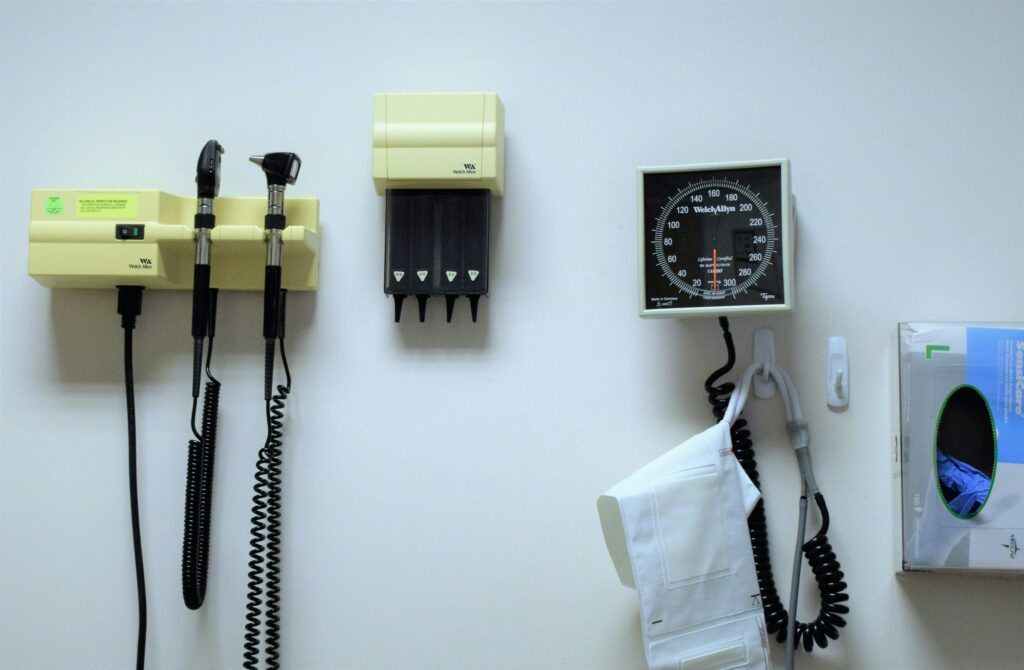Walking into a doctor’s office without preparation is like trying to assemble furniture without instructions—stressful and often confusing. But with the right plan, you can make your doctor’s visit productive, efficient, and empowering.
In this guide, we’ll show you step-by-step how to prepare for doctor’s visits effectively, ensuring your concerns are heard, your time is well spent, and you leave with a clear path to better health.

Why Preparation Is Key
Did you know most doctors’ appointments last only about 15 minutes? With such limited time, walking in prepared ensures you maximize the opportunity. A well-prepared visit can help you:
- Address your most pressing health concerns.
- Get accurate diagnoses and effective treatment plans.
- Avoid feeling rushed or dismissed.
Let’s dive into exactly how to prepare for your next doctor’s appointment like a pro.
1. Before the Appointment: Plan Ahead
Preparation starts long before you step into the doctor’s office. Use these tips to get organized:
Confirm Your Appointment Details
Double-check the date, time, and location of the appointment.
Ask if you need to bring specific documents, such as your ID, insurance card, or previous test results.
Set Clear Goals
Ask yourself:
- Why am I going? Is it a routine checkup, a follow-up, or to address specific symptoms?
- What do I need from this visit? A diagnosis? A treatment plan/adjustments to current treatments? A referral?
Write these goals down to stay focused during the appointment.
💡 Pro Tip: Use a health tracking app to track your day-to-day health, log symptoms and organize your health concerns.
2. Gather Important Documents and Information
Bringing the right information ensures your doctor has a complete picture of your health. Here’s what to prepare:

- A List of Symptoms: Note when they started, how often they occur, and any patterns you’ve noticed.
- Your Medical History: Include past surgeries, chronic conditions, and family medical history.
- Medication Details: List all prescriptions, over-the-counter meds, and supplements you’re taking.
- Test Results or Reports: Bring copies of recent lab work, imaging, or specialist notes if relevant.
💡 Pro Tip: Store your health documents digitally using a health management tool for easy access.
3. Create a List of Questions
Your time with the doctor is limited, so having a list of questions prepared can help you stay on track. Use these categories as a guide:
- Symptoms:
- What could be causing my symptoms?
- Do I need further tests?
- Treatment Options:
- What are the risks or side effects of this treatment?
- Are there alternatives?
- Prevention and Lifestyle:
- Do you recommend any additional changes I can make to improve my health?
- How can I prevent this issue from recurring?
💡 Pro Tip: Your time is important, as well as your doctors. Prioritize your questions, leading with the most important ones first.

4. Prepare for the Day of Your Appointment
Arrive Early
Plan to arrive 15–20 minutes before your appointment. This gives you time to check in, complete any paperwork, and relax before speaking with the doctor.
Bring a Support Person
If possible, bring a trusted friend or family member to:
- Take notes during the visit.
- Ask follow-up questions.
- Provide emotional support if the conversation is stressful.
Dress Comfortably
Wear clothing that allows easy access for examinations, especially if you’re addressing specific areas like your joints or skin.
5. During the Appointment: Advocate for Yourself
Your voice is the most important one in the room. Your health concerns are yours; you just have to voice them in a way that is medically relevant so doctors can use them. Here’s how to make sure your concerns are heard:
Start with Your Main Concern
Begin the appointment by discussing your top priority. For example, “The main reason I’m here is because I’ve been experiencing daily migraines for the past two weeks.”
Be Honest and Direct
Provide clear, concise information. Avoid vague phrases like “I just don’t feel right.” Instead, say, “I’ve been feeling fatigued every afternoon, even after getting a full night’s sleep.”
Ask for Clarification

If something isn’t clear, don’t hesitate to ask for an explanation. Say, “Can you explain that in simpler terms?” or “What does this mean for my health?”
Take Notes
It’s often really hard to remember information, especially if it’s complicated. If you’re able to, write down key points during the visit so you can review it later. It doesn’t have to be detailed or long, the main points to jot down are:
- Any new diagnoses
- Recommended treatments or updates to treatment plans
- Follow-up steps and recommendations provided by your doctor
6. After the Appointment: Follow Through
Review Your Notes
Review your notes on what was discussed to solidify your understanding of the appointment and the next steps that were talked about.
Schedule Follow-Ups
If additional appointments, tests, or referrals were recommended, schedule them promptly to avoid delays in your care.
Use Your Patient Portal
Many doctor’s offices provide online portals where you can:
- Review test results.
- Communicate with your doctor.
- Access visit summaries.

Common Mistakes to Avoid
Even with preparation, it’s easy to fall into these traps:
- Forgetting to Log Symptoms: Details matter! Keeping a record helps doctors connect the dots.
- Not Speaking Up: If you feel rushed or confused, ask for clarification or request a follow-up appointment.
Tip: Use Flourish AI to translate your health concerns into a format your doctors can understand and proactively use.
Why Preparation Empowers You
Being prepared transforms your role in a doctor’s visit from passive to active. By organizing your thoughts, documents, and questions ahead of time, you’ll feel more confident and in control of your health. Studies have shown that patients who are more prepared during their appointments, communicate their concerns more effectively and are therefore more likely to get their point across.
Their doctors are better able to use the information they provide and are able to use that data to plan next steps, putting patients down the path to good health, sooner.

